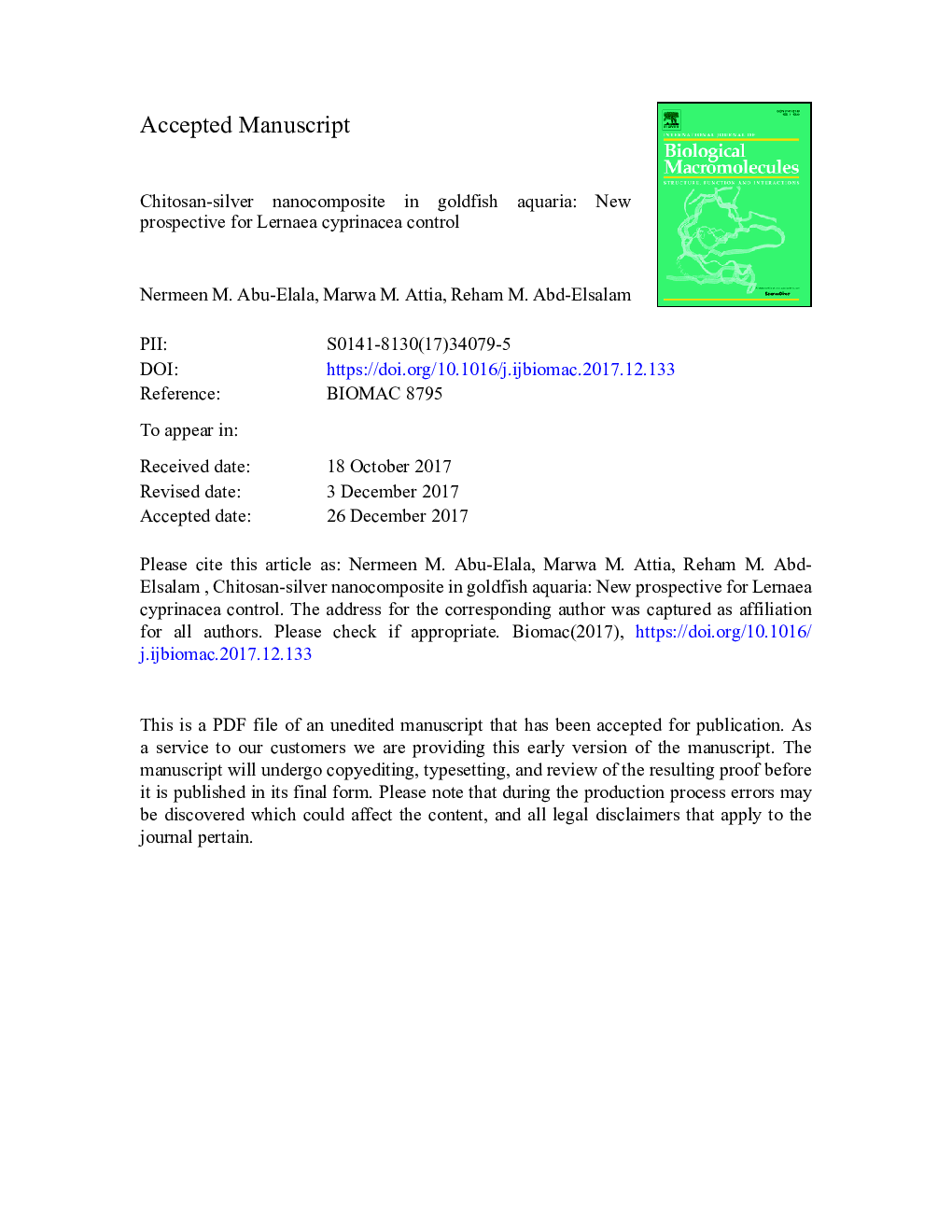| Article ID | Journal | Published Year | Pages | File Type |
|---|---|---|---|---|
| 8327965 | International Journal of Biological Macromolecules | 2018 | 31 Pages |
Abstract
Nanomedicine is a promising new research area in human and veterinary science. Metal nanoparticles have shown high biocidal activity against bacteria, fungi and viruses, few studies have focused on antiparasitic action. Therefore, this study aims to investigate the influence of chitosan-silver nanocomposites on the fish crustacean parasite Lernaea cyprinacea. The disease was detected in goldfish (Carassius auratus) aquaria during the spring. Molecular and morphometric characterizations of the parasite were performed using polymerase chain reaction for rRNA and scanning electron microscopy. Chitosan-silver nanocomposites were characterized using transmission electron microscopy and Zetasizer. Probit analysis of parasite mortality versus the logarithmic concentrations of the composites indicated that the 1Â h/LC50 was 5.495Â ppm. Parasites exposed to the chitosan-silver nanocomposites showed severe pathological alterations and adsorbed the composite particles on their cuticles. After aqueous exposure of the infected fish to the compound at its LC50 for 24Â h, the female lernaeids were completely dislodged. Moreover, the pathological findings indicated rapid skin wound healing and renewal at the parasitic injury site. Therefore, we concluded that chitosan-silver nanocomposites are potential parasitic control agents for ornamental glass aquaria, as they have detrimental effects on aquatic predators, such as copepods.
Related Topics
Life Sciences
Biochemistry, Genetics and Molecular Biology
Biochemistry
Authors
Nermeen M. Abu-Elala, Marwa M. Attia, Reham M. Abd-Elsalam,
